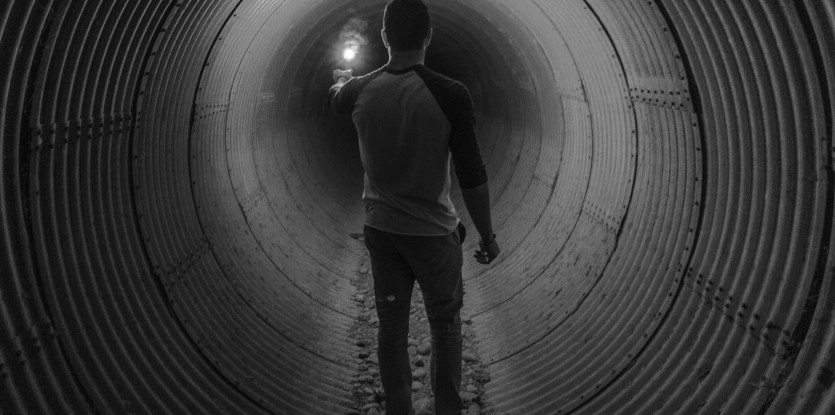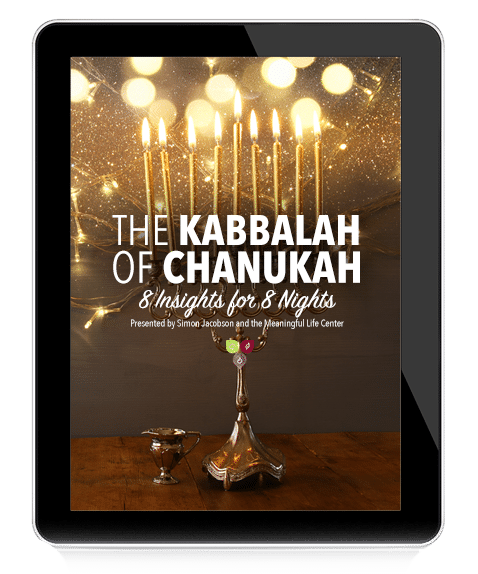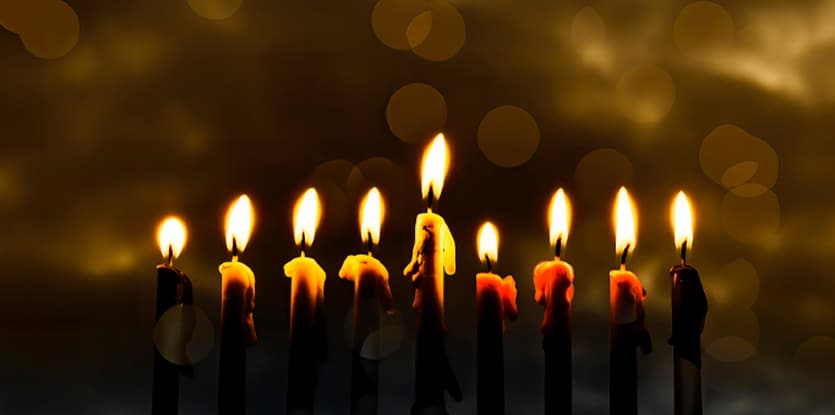The Wind and the Fire
Samech Vov – The Unplugged Version
JERUSALEM, CHANUKAH 2005
Walking the streets of Jerusalem is an experience in surrealism. In this ancient city the biggest issues of life collide with the minute trivialities of survival.
Above all, here the greatest challenge of all smacks you in the face: Can you remain aware and inspired even when the stimulation begins to wane?
Jerusalem’s fiber is unmistakably saturated with mystical mist. You can feel it waft through the pathways and stare down at you from the ancient stones. The mist surrounds you everywhere you go.
Then you look at the people shopping, yelling, honking – going about their daily business of survival no different than anywhere in the world – and you cannot help but marvel, or cry, at the paradox: Such meaningless pursuits in such a meaningful city; such temporary obsessions in such an eternal place.
On one hand in would seem more appropriate that Jerusalem should be empty of people who are not on Jerusalem’s level. Even Jacob was disturbed when he fell asleep on the Temple Mount and was unaware of G-d’s presence. “Surely G-d is in this place and I knew it not.” What about us, all asleep, not just for a night, but for many millennia, strolling around the holy city of Jerusalem as if it were just another town on the map?….
Is this perhaps the reason that Moses never entered Israel? Could it be that Moses, the man of G-d, could not enter the physical land as long as it was not seamlessly aligned with its intense holiness? That he and the land would have been compromised? Our sages actually state that had Moses entered the Holy Land the Redemption would have come and brought the highest state of spiritual awareness to all people.
[One tzaddik once said about another great tzaddik who never went to Israel in his lifetime: “In exile the Tzaddik is like the sun and Israel the moon. The “sun” did not want to embarrass the moon”].
On the other hand, it seems like such a great miracle to see so many people fill the city with life, love, virtue and yes, Torah and Mitzvot. How can one deny the profound pride derived from witnessing so many grandchildren of Abraham, Isaac and Jacob living and visiting the Promised Land, with Jerusalem at its center, the land promised to our Patriarchs so many thousands of years ago?
The contrasts are startling. Here I walk down the steps to the Western Wall, the only remaining remnant of the Holy Temple, where G-d says, “My presence rests.” And then my cousin Betzalel takes me shopping with him in one of the massive Jerusalem supermarkets, gathering bananas and vegetables amidst a swarming mass of Jews, Chassidic and all, pushing and shoving, shopping carts maneuvering in all directions (as only Israeli drivers know how). We go outside. Groups of young and old are eating Cholent out of plastic containers. Their passionate appetite is perhaps driven by the knowledge that they are elevating the Divine sparks in the potatoes, beans and kishke. Perhaps… but it still seems a far cry from the sublime nature of Yerusholayim.
I enter the neighborhood called Geulah, a bustling hub of devout Jewish fermentation, filled with Rabbis, scholars and students. A friend asks me: “If this is Geulah, where is Galut?…” (Geulah and Galut in Hebrew mean redemption and exile).
Yet again, how can you ignore the miracle of the once desolate Jerusalem becoming transformed into a thriving metropolis in our modern times? How can you not appreciate the beauty of seeing Jerusalem today become a powerful center of Torah learning and devotion?
All these contrasts emerge as you look at the vanity fair of life played out on the stage of this 4000-year-old city against the backdrop of its complex history.
You see, in Jerusalem everything seems to come into deeper focus. In this ancient city both virtues and vices, strengths and flaws, take on a magnified prominence.
If you don’t get caught up in myopia, Jerusalem can help you see very far and deep. Your own life – all of life – comes alive. But how easy it is to fall back into near-sightedness…
This paradox can be quite disconcerting.
But then I remember the theme of Samech Vov: The entire purpose of all existence is precisely this challenge – to generate inspiration in a world of no inspiration.
Yes, Jerusalem on its own burns like a powerful pilot flame. Yes, the winds of Judea fan the flames of any soul entering its embrace. People of all walks of life go to the Wall and just cry. They make their way through the winding tunnels under the city, visit its holy sites and come away awe inspired.
Yet, all inspiration wanes. It doesn’t take much to gravitate back to our good old patterns, no more changed by the winds of inspiration than a floating piece of wood is changed by the waves at sea. As the wave and the wind move on we go right back to where we began.
I walk the streets of Jerusalem and think about my late father Gershon – a true traveler. (My primary reason for visiting Israel this time was to raise money for the Gershon Jacobson Continuity Fund, the foundation we are building to perpetuate my father’s legacy). As much as he was a man of this world – a journalist, no less – he was also not of this world. He always had a healthy sense that no matter how important are our endeavors in this world, there was always something higher, unknown.
I guess this is the way all of us truly are. As children we are both present and not. We don’t take our selves so seriously at that point. Then we lose our innocence – we begin to be all consumed by our own self-importance, our needs, careers, money, politics and passions.
But some of us retain the enchantment of childhood, the innocence of first time discovery.
That dude Oscar Wilde said it well:
“In this world there are only two tragedies: One is not getting what one wants, and the other is getting it. The last is much the worst.”
That’s the way it is “in this world.” But in another world one can say something even better: “If it’s not about YOU and your wants and needs, then you can get what you want and be quite satisfied.”
On the day I returned to New York from Israel the New York Times ran not one but two articles that make a case against the human pursuit of happiness. In an article titled In Pursuit of Unhappiness, Darrin M. McMahon quotes John Stuart Mill as saying:
“Ask yourself whether you are happy, and you cease to be so. Those only are happy who have their minds fixed on some object other than their own happiness; on the happiness of others, on the improvement of mankind, even on some art or pursuit, followed not as a means, but as itself an ideal end. Aiming thus at something else, they find happiness by the way.”
McMahon suggests that “for our own culture, steeped as it is in the relentless pursuit of personal pleasure and endless cheer,” Mill’s message is “worth heeding.” He points out sociological statistics, that the percentage of those describing themselves as “happy” or “very happy” has remained virtually unchanged in Europe and the United States since such surveys were first conducted in the 1950’s. “And yet, this January, like last year and next, the self-help industry will pour forth books promising to make us happier than we are today. The very demand for such books is a strong indication that they aren’t working.”
In an unrelated article on the same page, Timothy D. Wilson argues equally convincingly that too much self-analysis and introspection is not the key to happiness. He quotes Aristotle’s famous words:
“We become just by the practice of just actions, self-controlled by exercising self-control, and courageous by performing acts of courage.”
If we are dissatisfied with some aspect of our lives, one of the best approaches is to act more like the person we want to be, rather than sitting around analyzing ourselves.
Of course, a certain measure of introspection is healthy and necessary, but an obsession that dwells on your self, and dissecting the pieces in order to fix each item, is self-defeating. Rather the focus must be not on YOURSELF, but on the cause you were charged to fulfill. Not on your needs and wants but on your higher calling.
That is the secret to true happiness. As G-d told Moses: “You cannot see my face” by looking directly at me. The intimate essence of G-d can only be experienced (seen) by not looking, by not allowing your “self” to get in the way. As soon as you look, the defined and limited you will not allow yourself to see G-d and exist. Only by suspending yourself in complete “bittul” and becoming a transparent channel can you then “see” G-d.
Now tell me, why could I not recognize this in Jerusalem? I had to come back to New York to read this in the… New York Times?
You work half your life to get what you want. Then you realize that once the chase is over you are still not satisfied. Ok, you’ve gotten what you wanted, now what? As another philosopher once said (his name is Mr. Spock in case you’re wondering. If you don’t who that is ask a “trekkie.” If you don’t know what that is then…): “It’s always more satisfying to want than to have.”
True happiness lies not in wanting great things or even in achieving your dreams. It lies in feeling that you are part of and serving something greater than yourself. That is the meaning of true transcendence: You can never be happy just with satisfying your own needs, because the “self” by definition is never sated.
So as we light the Chanukah candles during these last few nights of the holiday, we would do well to listen closely to the story of the flames:
The rising flame parallels the transcendent soul – always reaching beyond itself, aspiring to greater heights than its own.
Flames ignite and rise on the winds of inspiration. They flicker in a dance between heaven and earth.
But these flames too will ultimately burn out.
Then what? Then begins the real work of igniting ourselves, the hard work of generating our own inspiration and energy, and becoming a walking (or flying) flame – one that burns, warms and illuminates not only as long as it is being fueled by an outside (and therefore limited) source, but one that is self-fueled, with an endless source of inspiration.
Nowhere are the winds stronger than in Israel. Nowhere are the flames more powerful. Yet, nowhere are they more obscured as well. Nowhere can you get us much inspiration. It is so easy to get inspired in Jerusalem. It is even easier to get uninspired.
When you walk the streets of Jerusalem you can’t help but wonder: Will there ever be a world where people are always aware, always inspired, and always conscious of the Higher Presence?
And the Rebbe Rashab – who lived and wrote Samech Vov in far more troubling times than ours – calmly reassures us that it’s up to us.
We lonely humans, living in a dark, uninspired post-tzimtzum world, are the only ones that have the power to generate energy through our own efforts.
Existential loneliness can be overwhelming, even devastating, but its only redemption is in the fact that this loneliness allows us to transform ourselves and our loneliness into perpetual fuel that can burn forever.
And when we do, our efforts create enormous reverberations that ripple through of all the cosmos and back, and have the power to pierce the stubborn layers of surface existence and reveal the unprecedented truth within.
Thus we fulfill the very purpose of existence – which is the central theme of Samech Vov: To transform the material world into a home for the Divine, and draw down new unprecedented energy that expresses:
“the innermost aspect and essence of the Infinite, which is even higher than the light that filled the ‘space’ before the tzimtzum.”








